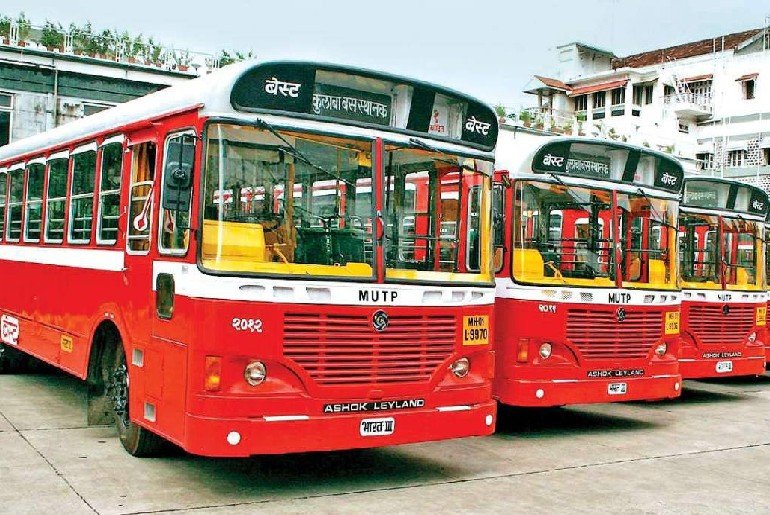Mumbai’s bus commuters faced severe disruptions on October 14 as over 250 Brihanmumbai Electric Supply & Transport (BEST) buses operated by private contractors suddenly went off-road. The stoppage left thousands stranded, reigniting debate over BEST’s controversial wet-lease policy, which allows private contractors to manage certain bus routes on behalf of the city’s transport authority.
This latest breakdown has intensified calls for policy reforms, with advocates questioning the viability of the wet-lease model and its impact on Mumbai’s public transport reliability.
The shutdown has provoked criticism from Aamchi Mumbai, Aamchi BEST (AMAB), a prominent commuter rights advocacy group, which urged the Brihanmumbai Municipal Corporation (BMC) and BEST to reconsider their approach. AMAB claims that the wet-lease model has consistently failed to provide stable and dependable service, asserting that the increased reliance on private operators is undermining the quality of Mumbai’s public transport system. According to AMAB, the situation could be significantly improved if the BMC integrated BEST’s budget into its own financial plan, ensuring dedicated and sufficient public funding.
AMAB has warned about the pitfalls of the wet-lease model since its implementation, citing frequent breakdowns and service lapses as a direct consequence of privatisation. “Mumbai’s commuters deserve a service that prioritises public welfare over profit,” stated AMAB, which also criticised the government’s preference for car-centric projects while overlooking urgent public transit needs. The October shutdown, though one of the more extreme instances, highlights a recurring issue in Mumbai’s bus services. Mumbai, known for its bustling commuter population, heavily relies on the BEST for affordable public transport. However, the wet-lease model has yet to deliver the reliability commuters expect. BEST’s service interruptions have not only left thousands in distress but have also raised concerns about commuters’ right to secure, accessible, and affordable public transport.
With the state assembly elections on the horizon, pressure is mounting on policymakers to address the crisis facing BEST. As more voices advocate for a reversal of the privatisation policy, there is an increasing call to re-evaluate Mumbai’s public transport priorities. Many feel it is high time the government recognises BEST as an essential public service, deserving of direct financial support to ensure it serves Mumbai’s residents rather than private interests.


